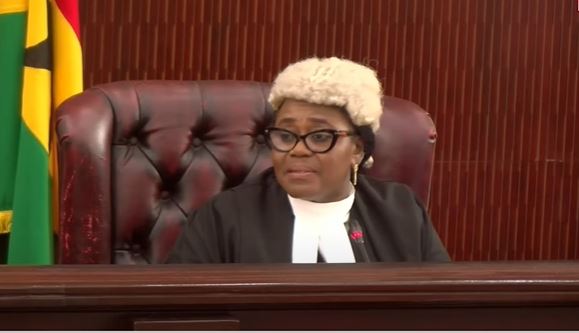Vacant Seats: Supreme Court to deliver judgment tomorrow
The Supreme Court will on Tuesday, November 12, 2024, deliver its judgment on the disputed decision by the Speaker of Parliament, Alban Bagbin, to declare four parliamentary seats vacant.
The absence of Mr Bagbin’s lawyer, Thaddeus Sory, during the Supreme Court hearing today, November 11, 2024, triggered the postponement of the verdict.
Again, Mr Bagbin’s counsel had not filed their legal processes as ordered by the court from the previous sitting.
The ongoing legal case was brought before the court by Alexander Afenyo-Markin, the leader of the New Patriotic Party (NPP) parliamentary caucus who is seeking an interpretation from the court that Article 97(1) (g) and (h) only applies to a current term of Parliament, and therefore the move by the Speaker to declare the seats of the four MPs vacant is unconstitutional.
Article 97(1)(g) of the Constitution states: “A member of Parliament shall vacate his seat if he leaves the party of which he was a member at the time of his election to Parliament to join another party or seeks to remain in Parliament as an independent member.”
Speaker of Parliament, Mr Bagbin, declared the seats vacant based on this provision.
At the apex court today, the seven-member panel, presided over by the Chief Justice, Justice Gertrude Sackey Torkornoo, proceeded to hear the case because the plaintiff, Alexander Afenyo-Markin and the Attorney-General, who is the second defendant, had filed their processes.
READ ALSO: [VIDEO]: Supreme Court hearing on vacant seats suit
After the court heard the submissions for the plaintiff, Attorney-General Godfred Dame presented his arguments.
Additionally, he said the application of the provision by former Speaker of Parliament, Professor Aaron Mike Oquaye, was also wrong.
He described as unconstitutional the ruling by Professor Oquaye in 2020, declaring vacant the seat of the then Member of Parliament (MP) for Fomena, Andrews Amoako Asiamah.
Mr Dame argued that the actions of former Speaker, Prof Oquaye, should not be used as a justification for what Speaker Bagbin did.
“No matter the number of times an unconstitutional act is repeated, it does not make it right,” he argued.



